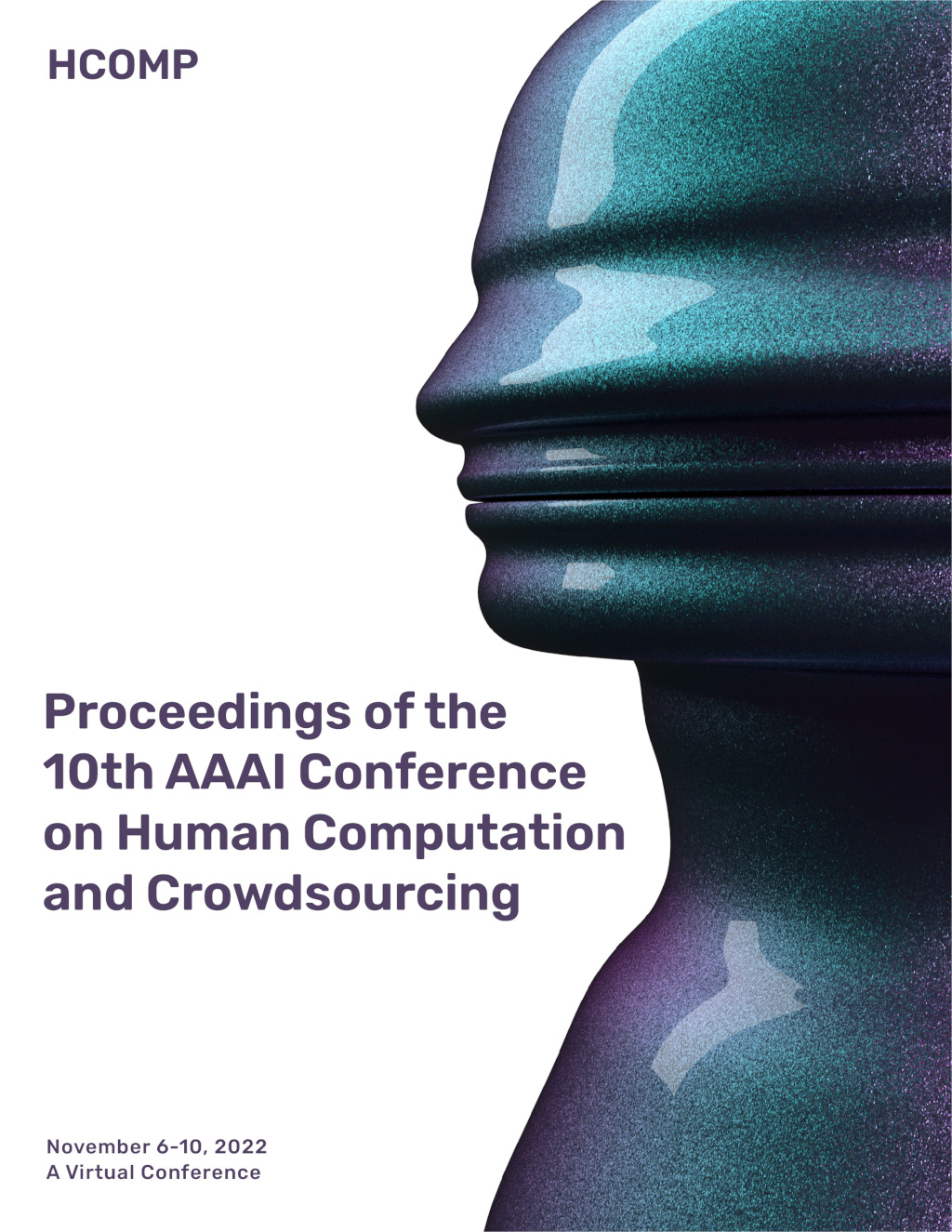Comparing Experts and Novices for AI Data Work: Insights on Allocating Human Intelligence to Design a Conversational Agent
DOI:
https://doi.org/10.1609/hcomp.v10i1.21999Keywords:
AI Data Work, Crowd Workers, Experts, Conversational AgentAbstract
Many AI system designers grapple with how best to collect human input for different types of training data. Online crowds provide a cheap on-demand source of intelligence, but they often lack the expertise required in many domains. Experts offer tacit knowledge and more nuanced input, but they are harder to recruit. To explore this trade off, we compared novices and experts in terms of performance and perceptions on human intelligence tasks in the context of designing a text-based conversational agent. We developed a preliminary chatbot that simulates conversations with someone seeking mental health advice to help educate volunteer listeners at 7cups.com. We then recruited experienced listeners (domain experts) and MTurk novice workers (crowd workers) to conduct tasks to improve the chatbot with different levels of complexity. Novice crowds perform comparably to experts on tasks that only require natural language understanding, such as correcting how the system classifies a user statement. For more generative tasks, like creating new lines of chatbot dialogue, the experts demonstrated higher quality, novelty, and emotion. We also uncovered a motivational gap: crowd workers enjoyed the interactive tasks, while experts found the work to be tedious and repetitive. We offer design considerations for allocating crowd workers and experts on input tasks for AI systems, and for better motivating experts to participate in low-level data work for AI.Downloads
Published
2022-10-14
How to Cite
Sun, L., Liu, Y., Joseph, G., Yu, Z., Zhu, H., & Dow, S. P. (2022). Comparing Experts and Novices for AI Data Work: Insights on Allocating Human Intelligence to Design a Conversational Agent. Proceedings of the AAAI Conference on Human Computation and Crowdsourcing, 10(1), 195-206. https://doi.org/10.1609/hcomp.v10i1.21999
Issue
Section
Full Archival Papers

